How To Recycle Stereo Equipment?
While most people have made the switch to connecting phones to Bluetooth speakers, there are still plenty of stereos and all the related speakers, receivers, and amplifiers out there that are reaching their end of life.
And knowing where and how to recycle old stereo equipment is important to ensure you do the right thing.
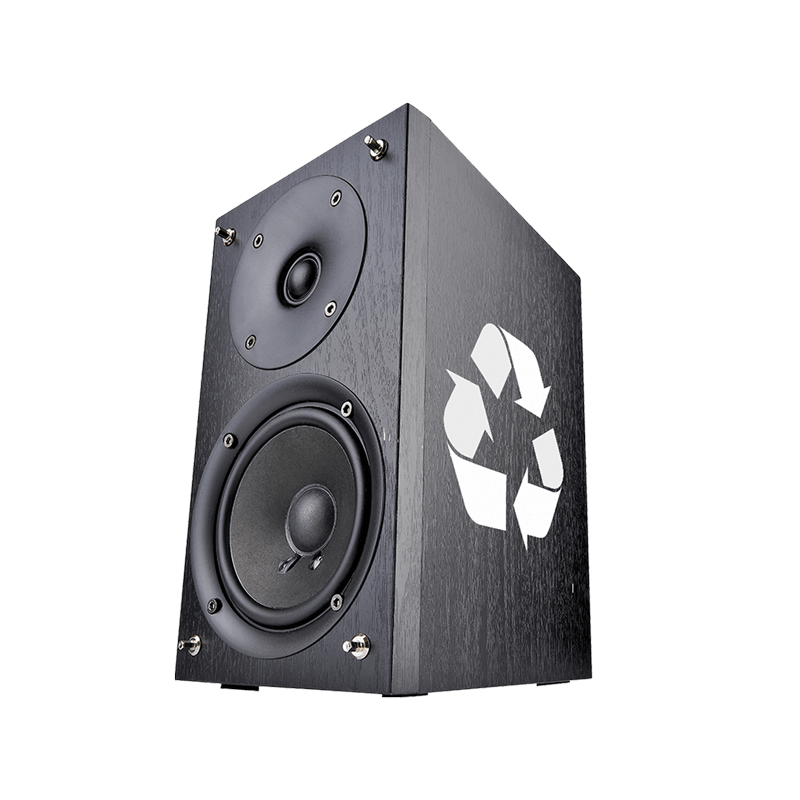
Why Should You Recycle Stereo Equipment?
The main reason to recycle old stereo equipment comes down to the fact that these devices contain a lot of materials that can be relatively easily extracted and used in new electronics.
From metals like copper and steel to plastic and glass, there are plenty of resources that shouldn’t just end up in a landfill.
Here are the key reasons why recycling is always the right thing to do:
Recycle valuable materials - Modern technology and stereo equipment don’t just contain copper and low-grade soldering metals. They often contain precious metals like gold and platinum as well.
Reduce mining demand - Whenever metals and plastic enter the cycle economy, it significantly reduces the need for mining raw materials through very destructive operations.
Reduced energy demand - While recycling does require energy, it’s a much less energy-intensive process than creating raw materials from scratch.
Less landfill demand - Fully recycling stereo equipment will also ensure that such devices don’t clog up landfills along with millions of pounds of other electronics.
What Materials Can You Retrieve From Stereo Equipment?
The materials you find in stereo equipment are very similar to computers and DVD players.
In most cases, the dominant material will be plastic or metal. It depends on the quality of the equipment, with high-end stereos having metal casings, while cheaper ones would have plastic casings.
But it gets a lot more interesting on the inside. This is where you will find a wide-ranging mix of metals from copper to gold and platinum and some cheaper soldering metals.
The difficulty lies in the fact that these metals are combined into components and often attached to different types of plastics. And it takes special equipment and expertise to properly break these parts down and then separate them into different materials.
How to Recycle Stereo Equipment?
When it comes to recycling your old stereos, you have several options for dealing with them.
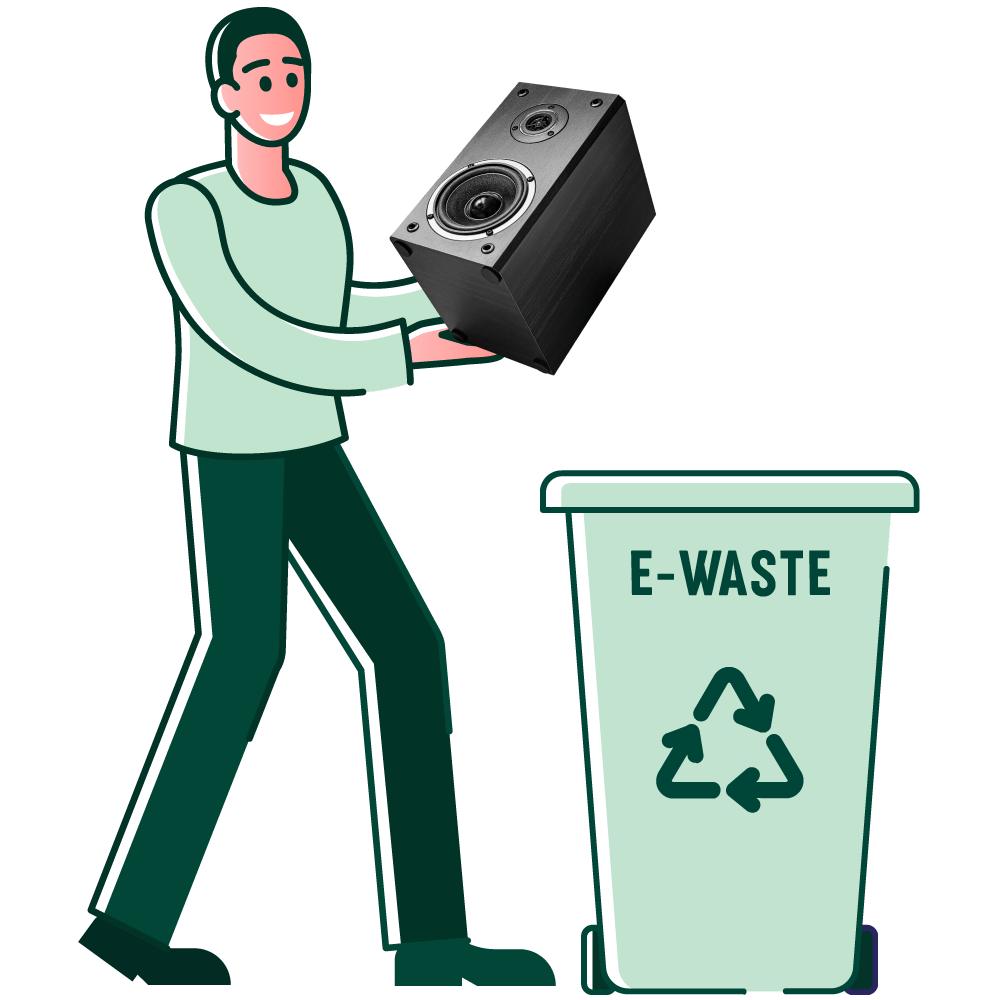
E-Waste Recyclers
This should always be your top choice, as handing over electronics to a certified and registered recycling provider is the best way to ensure all the parts and components are properly dealt with. Such recyclers use the latest technology to separate all the materials, and they will also be able to handle any toxic materials and ensure they are properly dealt with.
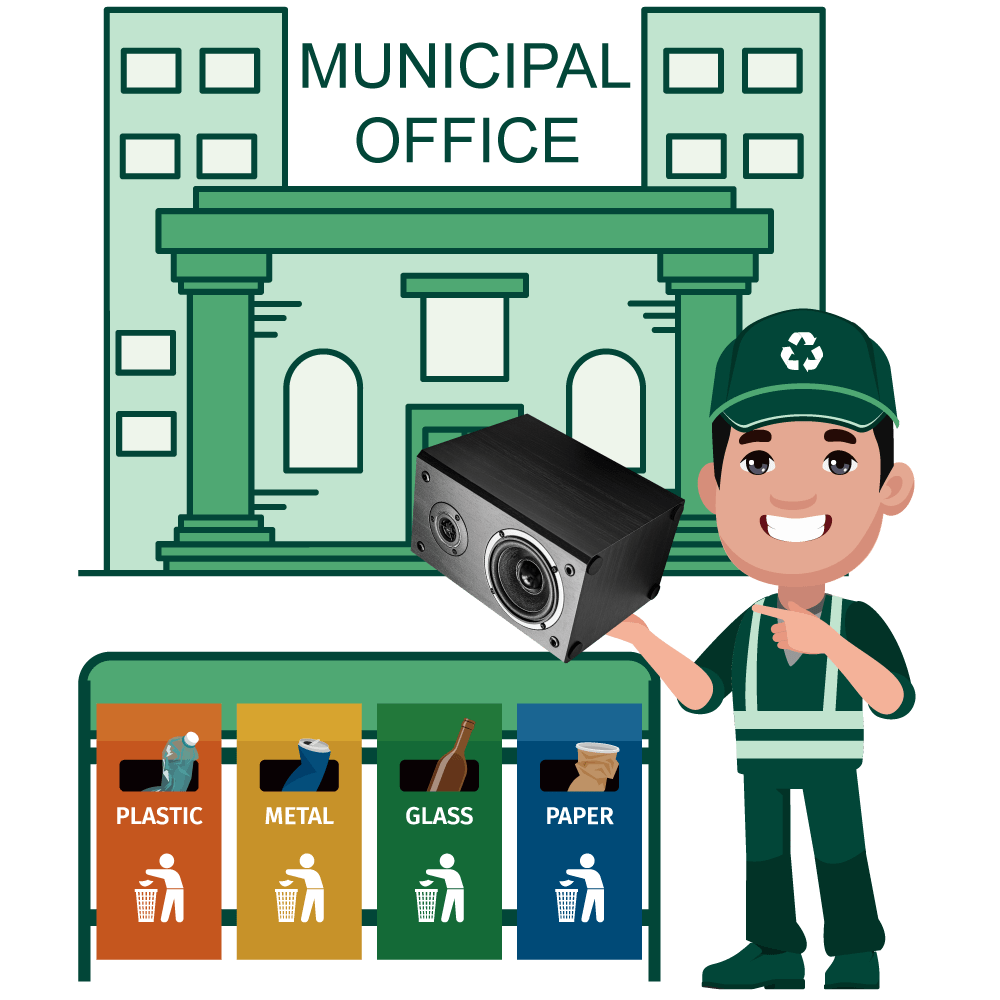
Municipal Waste Management
If you search for “recycle stereo equipment near me,” you’ll find that there are probably a few municipal waste centers that will accept electronics. I would suggest that you contact them first as some of these waste management companies don’t deal directly with the public. Some of these companies might also not specialize in taking consumer electronics.
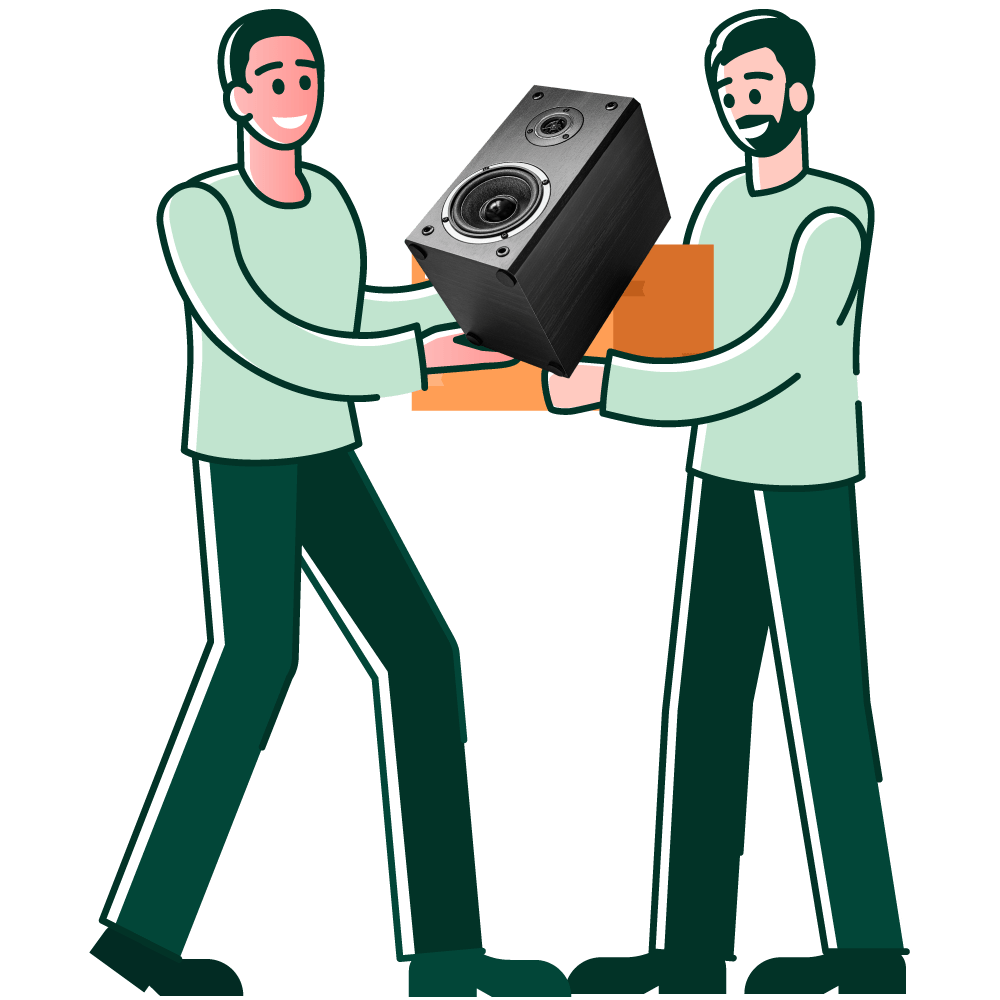
Manufacturer Take-Back Programs
Most manufacturers now offer a take-back program where you can either drop off an old stereo and send it to the company. Some companies offer this as a free service if you buy a new one of their electronics, so it could be worth contacting them. You might also find that electronics stores will accept a stereo if you’re going there to buy a new one at the same time.
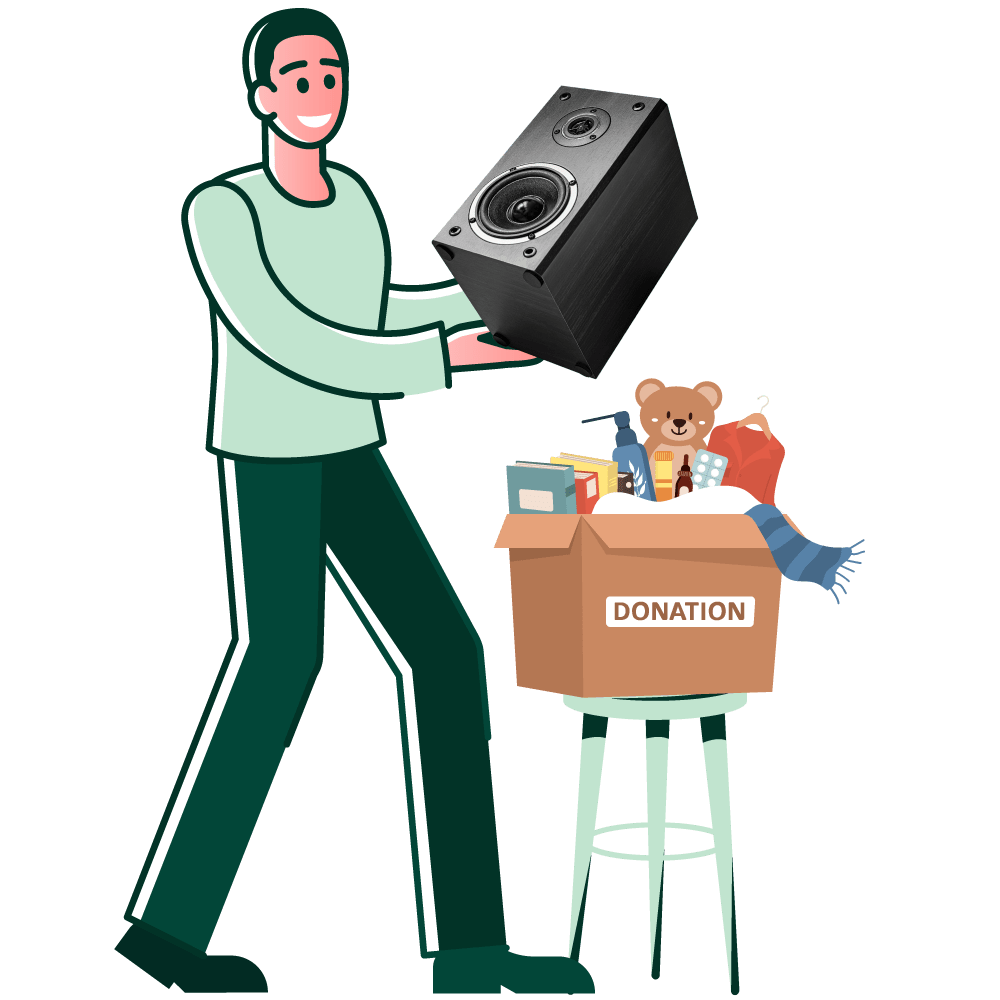
Donation
If your stereo is still in working order, then I would suggest checking with some local charity stores to see if they will accept it. A lot of charity stores will depend on such donations, and the people that buy from them often don’t have the money to buy expensive new electronics. Alternatively, you can add a post on a community board offering it for free for someone to collect.
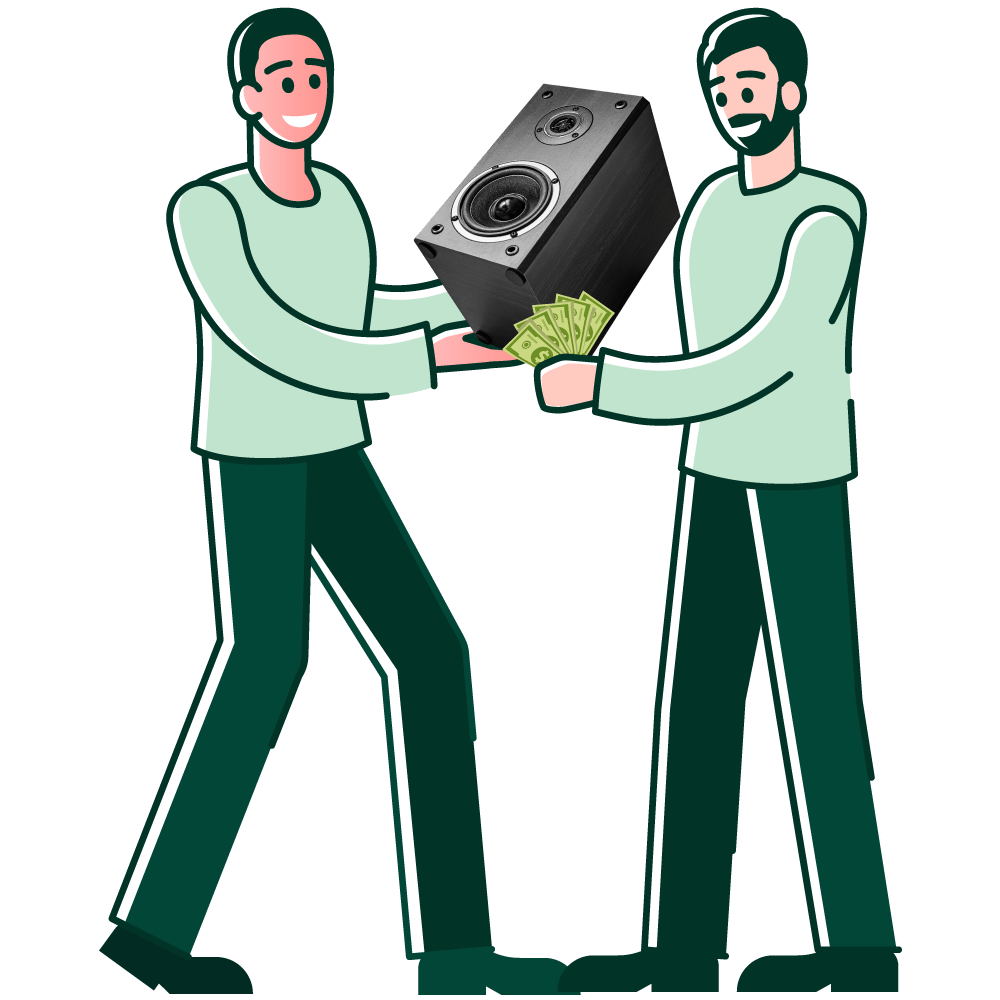
Selling
You can also recycle stereo equipment for cash, especially if you have a high-end piece of equipment. Many music fans prefer having dedicated audio equipment and don’t like the sound they get through Bluetooth speakers.
Where Can I Recycle Old Stereo Equipment?
Let me now show you where you can best go for dealing with an old stereo that’s either broken or has simply reached its end of use.
Drop-off Recycling (for residents in the San Francisco Bay Area)
If you live in the San Francisco bay Area, then I would suggest that you come to Green Citizen’s Burlingame recycling center. Simply fill out a form with details of your stereo and weigh the equipment.
When you come to our office, you can pay the small by-weight fee through contactless payment, and we’ll handle the recycling process from there.
Business Recycling Pickups (for businesses in the San Francisco Bay Area)
If you have some old stereos left in your business premises that you simply don’t have any use for, then you can also arrange for us to collect this. I would suggest you also check for other electronics that you may no longer need and bundle them all into boxes.
Fill out a collection form and send us photos, and we’ll provide you with a quote for the collection and recycling.
Mail-in Recycling (US-wide Service)
If you don’t have any e-waste recycling centers near you, then you can make arrangements to send your stereo to Green Citizen. Fill out the mail-in form and weigh the equipment. You can then conveniently pay the processing fee online and send the stereo to us with your preferred shipping company.
Green Directory (US-wide Service)
And finally, if you’d like to find some recycling centers near you, then you can use our Green Directory. Simply enter your zip code and the kind of service you’re looking for, and we’ll provide you with a list of companies.
DISCLOSURE *: GreenCitizen is passionate about making every day Earth Day for the people and businesses we serve. We introduce only those green products and services that we believe can help our customers reduce waste and environmental damage. We participate in Amazon Associates and other affiliate programs that earn us fees when site visitors follow certain links. We’re committed to using all such revenues to increase our efforts toward making every day Earth Day.

